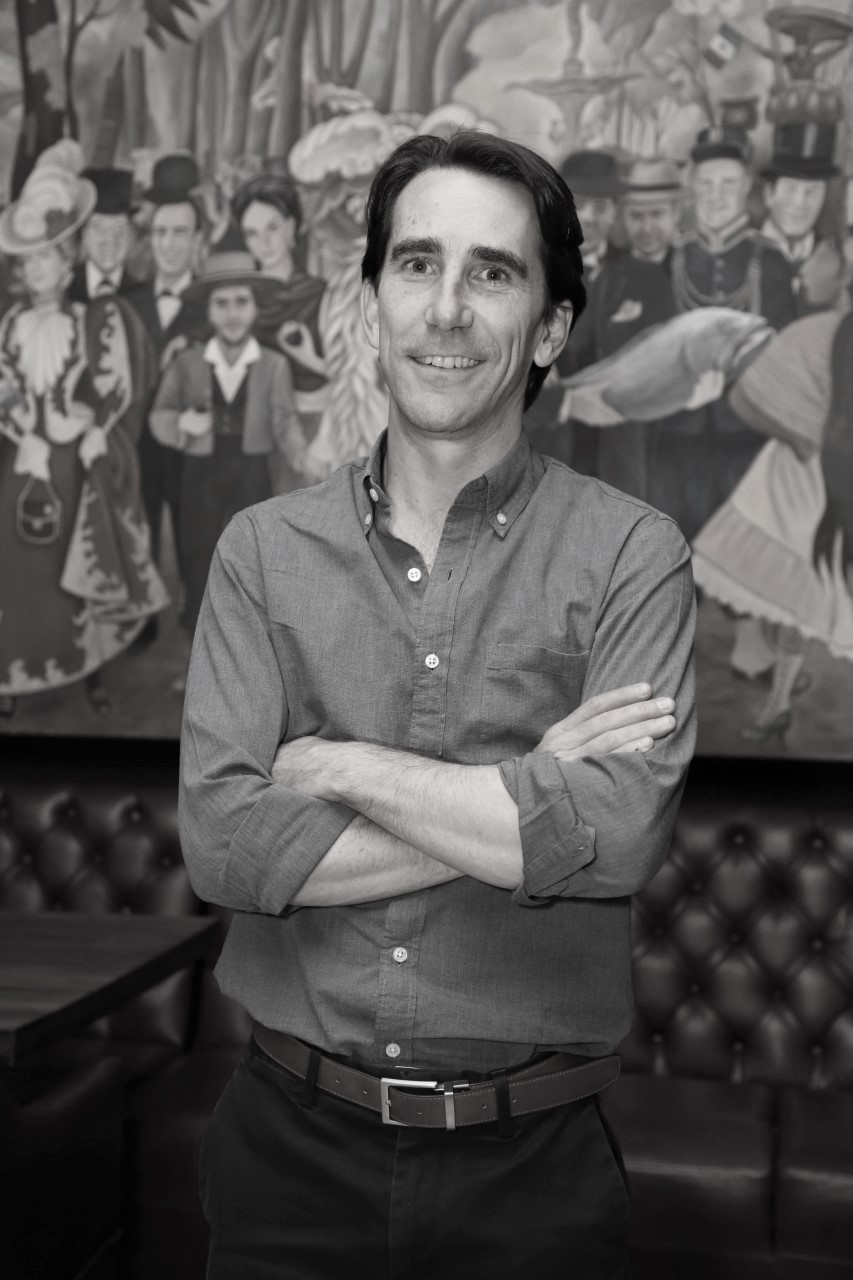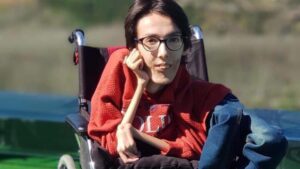
OLBIOS: Almost ten years ago, you received an autism diagnosis for your son. Soon after you created a very successful awareness campaign that helped you found Iluminemos de Azul. Can you tell us more about the starting point of your work and the experiences that shaped it?
Gerardo Gaya: I received the diagnosis in 2012, and I can tell you that it was very difficult for us as a family. I can sum it up in two main thoughts: 1) I was not willing to have a different life, in terms that going to eat at a restaurant, or going to a movie, could be a good experience or a very bad experience, and it almost always depended on the people sitting next to you more than anything. 2) I received a comment from a mother that read “no one is interested in autism”, and it blew my mind. I replied, “and what are we doing about it?”. In between, we kept “fighting” with many things… receiving comments like “don’t tell anyone, they are going to label him”, “don’t tell the school, they will not accept him”.
The breaking point for me was a flight on a family trip. While we were in line to board the plane, my son yelled, and the passenger in front of me didn’t like it. By the third yell, things were close to going very wrong, I almost punched the guy. In my frustration, not feeling empowered nor having the courage to stand up and just say “he has autism”, I could only say to myself while boarding “if it’s up to me, April 2nd (world autism awareness day) will never be the same”.
So, I started putting together an autism awareness event and fundraiser, with great success on 2014. I learned that there wasn’t a single person that wasn’t willing to help if I reached out for his or her support. I was very happy, but I didn’t quite understand what had happened. I learned the importance of raising awareness and the great need for that to happen. Some advocates and organizations where asking me, “what’s next”, and didn’t have a clue.
But, I knew that if we took the same strategy or concept to the most popular sport in Mexico, soccer, we could make something extraordinary. I built a project around “Iluminemos de Azul” as an awareness campaign, which I was fortunately able to present to the President of the National Soccer Federation. We had a lot of support from local league players, the national soccer team and federation, media and five key people: Caty Serna and his husband, Jaime Lozano who was a former soccer player; Justino Compean, at the time the president of the national team; Rodrigo Aroca, producer; and Jose Baston, former Vice President of a international mass media company. It all came together, people willing to do something about it, my restlessness and a huge and urgent need to raise autism awareness.
O: You work towards including and integrating people with autism. What are the necessary strategies in terms of social impact actions, awareness initiatives and empowerment in order to achieve this ambitious goal?
GG: First, make it visible. We cannot include that which we don’t know it exists and raise awareness, because we can’t include that which we don’t know about. I believed that if we made autism visible and make it of public interest, things would start getting better, and “the snow ball effect” would begin. We’ve done everything we can to make autism visible in the media, with major brands and everywhere we can. Conferences, meetings, third party events, articles and interviews in the media, campaigns with major brands, promoting services and job opportunities, soccer teams, soccer league, and so on. Autism and inclusion have to be part of our conversations and within the social and public agenda.
Awareness leads to empowerment of our community, making it visible has had a lot of impact in early diagnosis. Public interest makes people care about it and they begin, at least, wondering what can they do about it. But we learned that just awareness without actions, would not and hasn’t been enough. So, we started working more for our community, to empower parents, to give conferences and workshops for us parents, and participated in hundreds of public incidence and public policy making activities.
O: You have implemented more than 250 projects working with cultural actors and famous athletes, among others. At the same time, you have spoken at hundreds of conferences around the world. What would you say was the concrete impact of this for people with autism?
GG: Honestly, I’m still trying to figure it out because it hasn’t been enough. I wish Iluminemo
s de Azul wasn’t necessary anymore, and I wish I didn’t have this job. Don’t get me wrong, I love my job, it has been the most extraordinary experience of many lifetimes for me, but if Iluminemos de Azul and I where “out of the job”, there would be no need for awareness, support to families and public services and public policies and programs. We’ve seen results, we’ve witnessed a lot of great things and changed many lives, empowered and inspired thousands or hundreds of thousands of people, but it’s not enough. If with a single event, campaign, social media post, a workshop or a conference, we empower a single parent to do what he has to has to do with his child, or we inspire a school to its work better in education around diversity, inclusion and create tools to provide educational opportunities to a child, or a business creates one job for one adult, or the public services provide one single early diagnosis and quality intervention service, we’ve done what we set out to do.
It’s all about creating the circumstances for people with autism and their families to have the same opportunities as everyone else. If one of our participations or interventions on legislation and public policy within any country, one family, one child or one adult improves his quality of life making available opportunities he should have in the first place, then we are on the path to fulfill our mission.
O: Is it true that the causes of autism are still a mystery? Is it also true that with specialized and personalized treatment, every person with autism can succeed in leading a satisfactory life?
GG: It’s all about creating chances, and I will get to that. Yes, causes of autism are still a mystery and, to be honest, I think many years will pass before science finds out what really causes autism. There are many things involved including, genetics and epigenetics. I think we, as community, have lost a lot of time, even years, trying to “find a cure” or resolving the mystery of what causes autism. Clearly, we’ve learned a lot, thankfully science has a better idea than 10 years ago, but we need to really understand it more than research it (and yes, I know research has to be done for that too). In addition to researching the causes, we also need to research more the effects.
We have to do more research on how science, intervention and treatment can have a greater impact on improving the quality of life of autistic people across their entire life span. We need to develop solutions, with science, health, education and technology that create better opportunities and yes, intervention and treatment, and we musn’t forget those who need a lot of support and special care. We can’t forget parents and caregivers. There is also an urgent need for us to come together as a community. We have to understand neurodiversity, autism and every development or neurological condition. We have to work towards acceptance. We have to ask ourselves if Intellectual Disability really exists as we know it or as we believe it is, or instead whether we haven’t figured out how to make everyone learn and reach their full potential. A new paradigm for education: is it that “they can’t learn” or that we haven’t been able to teach them?
We know that early diagnosis and early intervention are the most important things. And for that, parents and families have to be empowered and be given the tools. Maybe not all people with autism will be able to speak, but we are sure now that they are able to communicate if we understand and find the right tools. I strongly believe that we can make anyone, regardless of their condition, reach their full potential if we really want to. Not in the way we are doing it right now, but if we really challenge ourselves about what we regard as “normal”.
We have to close the gap between services and acceptance through awareness. I believe that to really include one child with autism, we have to bring together diagnosis and intervention within society in general. Even though we might not be able to “change” something we “may don’t like” about one child with autism, we can tell society that it’s ok, and with understanding and acceptance, that child can have the opportunities he needs in order to have a satisfactory life, and one adult can have a successful job if we or any company understand his “restricted interests” or “social challenges” as skills. They can and should take advantage of that, because he, for sure, will excel. I could go on forever talking about this.



